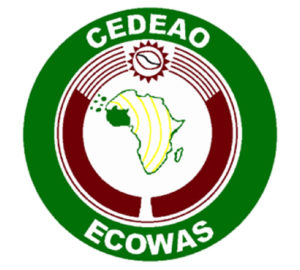Construction work on Abidjan-Lagos Corridor Highway to commence next year
 Construction work on the six-lane dual carriage Abidjan-Lagos Corridor Highway is expected to commence next year, Mrs Rita Ohene Sarfoh, Project Director for the Ghana section, has said.
Construction work on the six-lane dual carriage Abidjan-Lagos Corridor Highway is expected to commence next year, Mrs Rita Ohene Sarfoh, Project Director for the Ghana section, has said.
She has, therefore, appealed to Metropolitan, Municipal and District Assemblies (MMDAs) and traditional authorities to protect the right of way within their jurisdictions earmarked for the corridor for a smooth take off.
She said this at a stakeholders’ sensitisation workshop at Aburi, in the Eastern Region, on Wednesday.
Mrs Sarfoh said Ghana had a major role to play to ensure the success of the project, considering that it had a chunk of the roads in the corridor.
Out of a total road length of 1,028km expected to be constructed, Ghana alone accounts for 576km, including a 2.7km under tunnel from Ga East in the Greater Accra Region to Berekusu in the Eastern Region.
Mrs Sarfoh said: “That tells you that we own more than half of the entire corridor and so, we are very key to this project.”
“Wherever we go, they want to know how Ghana is going and how Ghana will be able because, if we don’t do our section well, then we are not going to ensure that this project succeed.
“We ask for your support and ask for your cooperation. If you require us to even come to your assemblies to help sensitize and bring all these information, and Nananom, if you want us to come to your durbars, our communication specialists are there to help us protect our right of way so that, when we start the construction in the Ghana section, we hope we can start by next year, we can boast that Ghana, the shining star of Africa, we are really the shining star and the hub of Africa,” she added.
The objective of the workshop was to sensitise the MMDAs, chiefs, technical and political staff on the purpose of the Abidjan-Lagos Corridor Highway Project and its importance to regional development as well as, seek suggestions and recommendations from them to inform the project preparation and implementation.
The Abidjan-Lagos Corridor covers a total distance of 1,028km and connects some of the largest and economically dynamic cities in Africa namely Lagos, Accra, Cotonou, Lome and Abidjan.
It also covers a large proportion of the population of West Africa and links very vibrant seaports, serving all the landlocked countries in the region – Burkina Faso, Mali and Niger.
The project, when done, would generate economic and social activities, promote cross-border trade and integrate economies within the ECOWAS community.
It is being implemented by the ECOWAS Commission.
Mrs Sarfoh who is also the Director, Policy, Planning and Budgetary at the Ministry of Roads and Highways, indicated that the feasibility component of the project had been completed while corridors had been earmarked for the smooth start of the project.
Giving details of the project, the Project Director explained that the corridor had been divided into three lots, where Lot One entailed the construction of 295km of roads from Abidjan to Bassam-Noe in Cote d’Ivorie through to Elubo-Apimanim Junction, in Ghana.
Lot Two, which is the Ghana section, involved the construction of 466km roads from Apimanim to Cape Coast through to Accra, Sogakope and to Akanu, adding that, Lot Three entailed construction of 320km roads in Togo, Benin and Nigeria.
Mrs Mercy A. Payne, Acting Regional Highway Director— Central, bemoaned the fast development on corridors earmarked for the project.
She identified Oyibi, Ayi Mensah and Afienya in the Greater Accra Region as areas with fast development, indicating that that could pose a major challenge to the effective implementation of the project.
Dr Abass Awolu, Chief Director, Ministry of Roads and Highways, indicated that the corridor was an important one to the Government and the ECOWAS Commission because it held enormous social and economic benefits to the country and urged the MMDAs and chiefs to support the project.
“The positive impacts of this development will reflect on your communities hence, we kindly request your support and cooperation to accelerate the implementation of this important project,” he said.
Dr Awolu assured that the Ministry and the project implementers would ensure the safety of persons, protection of forests and river bodies as well as secure the communities from road crashes.
At the workshop was Mr Christian Nti, Chief Executive Officer, Ghana Highways Authority.
Source: GNA
